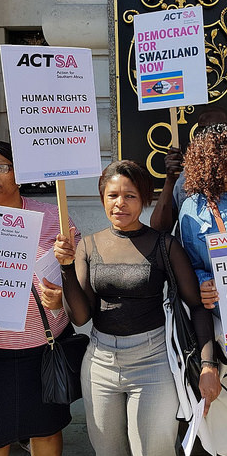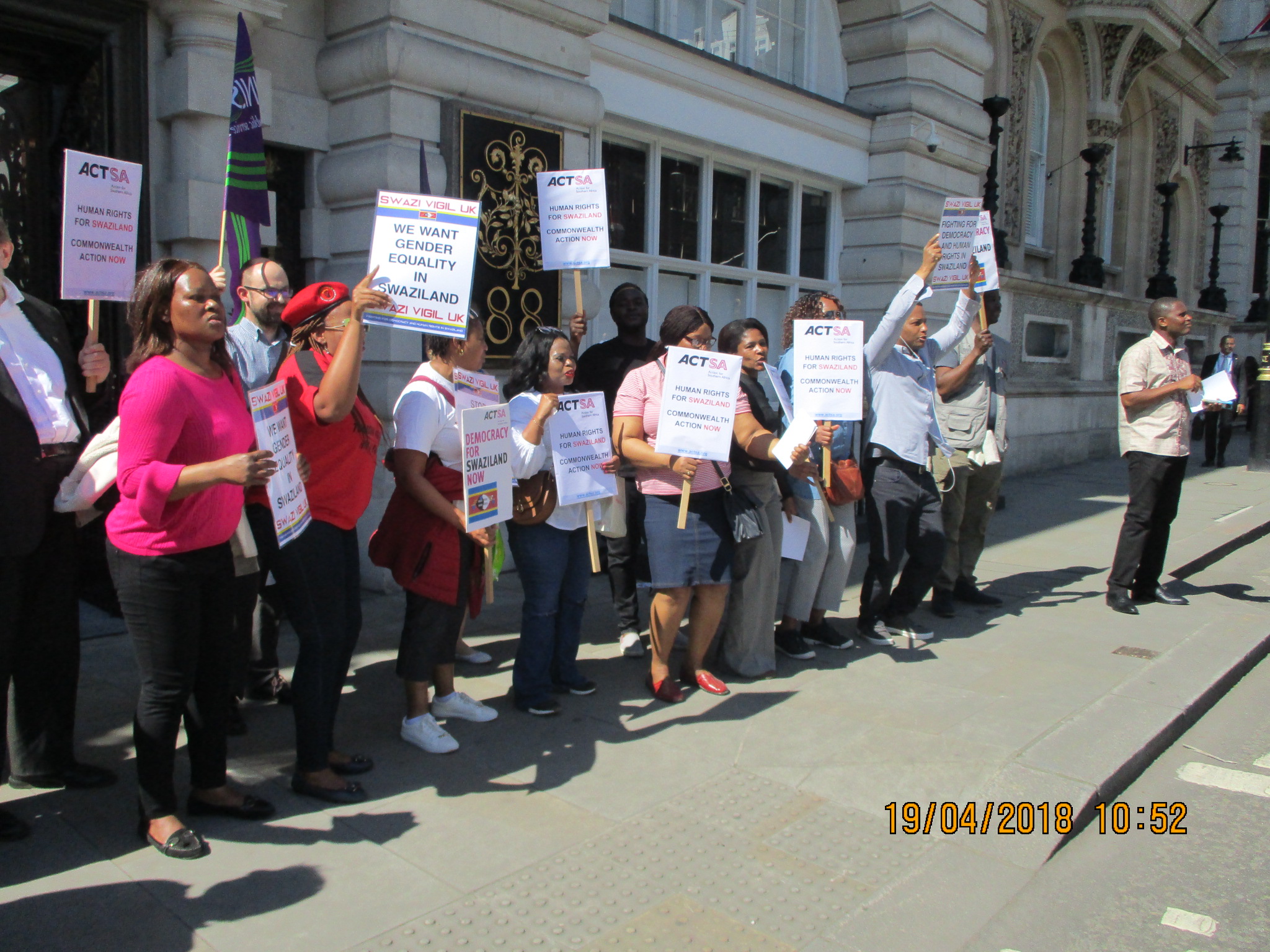The Kingdom of Swaziland, now known as the Kingdom of eSwatini is a member of the commonwealth, yet it does not comply with principles and rules of the commonwealth of promoting democracy and human rights. Every citizen has a right to participate in their country's affairs.
The Commonwealth values, which include the promotion of democracy, human rights, good governance, the rule of law, individual liberty, egalitarianism, free trade, multilateralism and world peace, emerged in independence movements and the struggles for self-government.
The Commonwealth promotes democratic consolidation, members of the commonwealth should correlate strongly with the presence of democratic processes and institutions.
Swaziland is failing to reach an acceptable standard in democracy, the Swazi government uses the 1973 Kings decree, which banned all political parties, to supress all political freedom in the country. This 1973 decree ushered the country into a state of emergency which has been in effect since 1973 up to-date. The Swazi Government also uses the Sedition and Subversive Activities Act of 1938, and the 2008 Terrorism Act to imprison those who are fighting for democracy.
The Commonwealth is well placed to be an influential player on the world stage in the years ahead. Indeed, one could even say that it has a responsibility to play such a role. Its diverse membership is committed to a set of values founded on democracy and the rule of law and embodied in the Commonwealth charter.
In Swaziland, the king is the only person who makes political, executive, and judicial decisions pertaining the country's governance, whether right or wrong no one has the right to challenge any decision that is made by the king because by Swazi tradition he is infallible (in SiSwati: he is the mouth that never lies… meaning he doesn’t lie, his word is final, it cannot be challenged). Political parties, as they are illegal, are banned from taking part in elections. Civil and political rights are constantly denied by the country's authorities.
Human rights, democratic principles, consultation, cooperation, and consensus-building are fundamental political values of the Commonwealth, yet Swaziland does not abide by these principles.
According to reports from the Commonwealth Heads of Government - Swaziland is in the lowest quartile of countries in the world for press freedom. The Sedition and Subversive Activities Act, which still remains in full force, restricts freedom of expression by criminalizing alleged seditious publications and use of alleged seditious words, such as those which “may excite disaffection” against the king. Many journalists told Human Rights Watch that they practise self-censorship, especially with regards to reports involving the king, to avoid harassment by authorities.
The Swazi law and culture does not allow citizens to voice their concerns even if they are being oppressed. Swaziland government should respect human right.
The constitution provides for equality before the law, but also places the king above the law. A 2011 directive, which protects the king from any civil law suits, issued by then-Swaziland Chief Justice Michael Ramodibedi after Swazi villagers claimed police had seized their cattle to add to the king’s herd, still remains in force.
Restrictions on freedom of association and assembly continue, the government has taken no action to revoke the King’s Proclamation of 1973, which prohibits the formation and operations of political parties in the country.
In 2017, Swaziland struggled to fulfil the rights of its estimated 1.4 million population amid numerous political and socio-economic challenges, including the highest HIV infection rate in the world at 26 percent according to the United Nations Children’s Fund (UNICEF).
We say no to intimidation, harassment, beatings and arrests of freedom fighters. We want freedom of speech, assembly, association, thought and religion.
Article 20 of the Swazi Constitution provides for equality before the law and non-discrimination, but does not prevent discrimination on the grounds of sex, language, sexual orientation, and gender identity. Swaziland’s dual legal system, where both Roman Dutch common law and Swazi customary law operate side by side, has resulted in conflicts leading to numerous violations of women’s rights.
Swazi culture also discriminates against women and girls. Swazi culture is failing on new dynamics, it is still rooted in the old culture, it does not embrace the new world of equality and equal opportunities. Women in Swaziland are not allowed certain positions. Swazi culture also discriminates grieving widows mourning the passing of their spouses. The culture dictates that women in mourning should not go to certain places for a period of 2 years.
In August 2017, human rights groups Southern African Litigation Centre and Women and Law in Southern Africa (WLSA) challenged Swaziland on these discriminatory laws in court on behalf of a married Swazi woman, who upon being deserted by her husband, was unable to sell any of the livestock she purchased with her own money because she did not have her husband’s consent. At the time of writing the matter had not been finalized in court.
The 2005 constitution allows four female members of parliament to be appointed from each region, but up to today, it has not happened. The Sexual Offences and Domestic Violence Bill has been in discussion since 2006 by the house of commons, and it was passed in 2009 but it is still awaiting the king’s signature to put it into law to protect women’s and girls’ rights, and to outlaw child marriages.
In September 2017, King Mswati told the United Nations General Assembly in New York that Swaziland is committed to peace and a decent life for all. He said his government grants every citizen an opportunity to voice their views in order to constructively contribute to the social, economic, cultural, and political development of the country. He failed to mention, however, the recently passed amendments to the Public Order Act, which allows critics of the king or the Swazi government to be prosecuted, and upon conviction be fined E10,0000 (US$770), imprisoned for two years, or both for inciting “hatred or contempt” against cultural and traditional heritage.
The Commonwealth should put pressure to Swaziland to follow their principles and values.
By: Juliet Zodwa Dlamini
References:
http://www.times.co.sz/feature/118156-people-must-not-be-enslaved-by-culture.html
https://www.theyworkforyou.com/lords/?id=2018-03-22a.422.8
https://www.hrw.org/world-report/2017/country-chapters/swaziland



 Protest photos on Flickr - Click
Protest photos on Flickr - Click